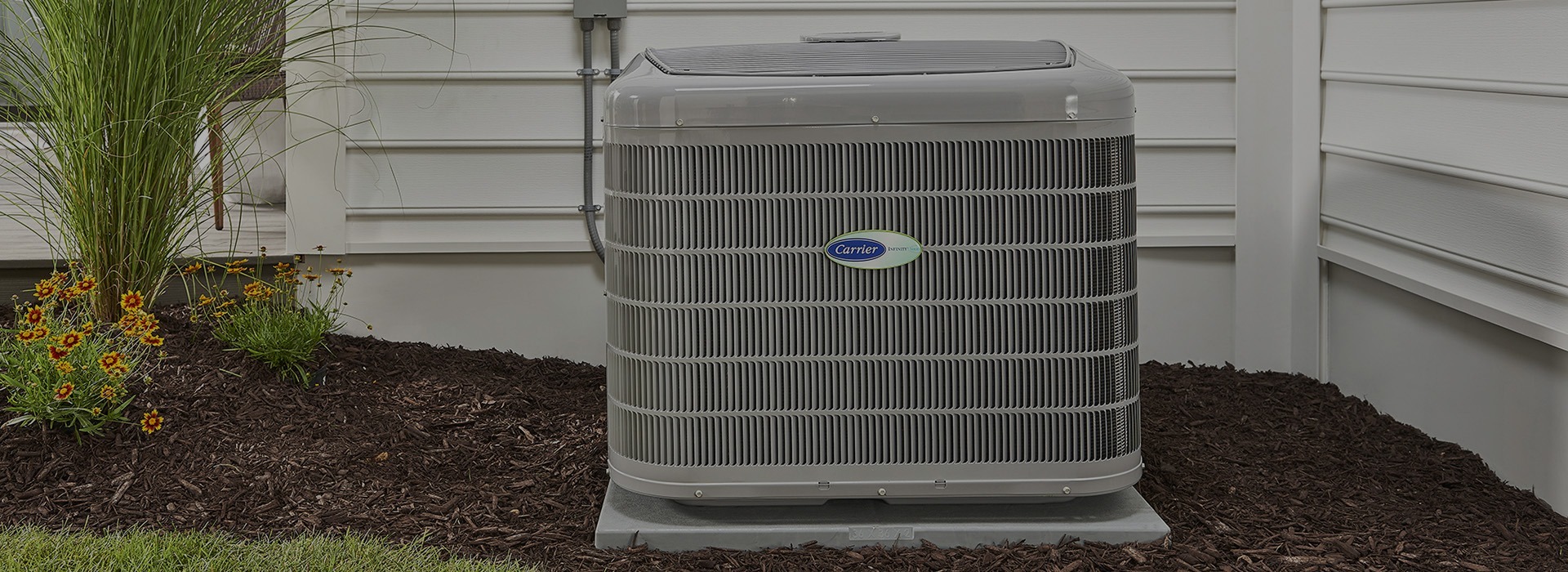Upgrade Your System Today with DMAKS HVAC Professional Help.
Upgrade Your System Today with DMAKS HVAC Professional Help.
Blog Article
Energy-Efficient HVAC Solutions to Conserve on Energy Costs
As power prices remain to climb, the importance of energy-efficient heating and cooling systems ends up being progressively obvious. These systems not just guarantee significant savings on utility costs yet likewise add to an extra sustainable future by lessening energy intake. With different choices offered, including geothermal heat pumps and ductless mini-splits, residential property owners face a multitude of choices that can boost convenience and air quality. However, recognizing the crucial functions and maintenance needs is necessary to maximizing these advantages. What elements should be focused on when choosing the appropriate system for your requirements?
Advantages of Energy-Efficient Heating And Cooling Equipments
Energy-efficient Heating and cooling systems supply numerous advantages that prolong past plain cost savings. By taking in less power, these systems add to lower greenhouse gas emissions, assisting to combat climate modification and promote sustainability.
Furthermore, energy-efficient cooling and heating systems frequently supply improved convenience degrees. Most of these systems include innovative modern technology that permits far better temperature level control and boosted air top quality (DMAKS HVAC). This brings about a much healthier interior setting, which is specifically vital for people with allergic reactions or respiratory system problems
In addition, spending in energy-efficient a/c systems can improve property value. As more customers focus on energy effectiveness, homes and buildings equipped with these systems might bring in greater quotes in the genuine estate market.
Types of Energy-Efficient HVAC Options
Exactly how can property owners and companies select one of the most ideal energy-efficient cooling and heating alternatives for their requirements? The market offers a selection of energy-efficient a/c systems, each created to enhance convenience while lessening energy consumption.
One alternative is the variable refrigerant circulation (VRF) system, which successfully manages the temperature in several zones within a structure. This system adapts its cooling agent circulation to match the desired temperature level, resulting in significant power cost savings.
Another popular selection is geothermal heatpump, which utilize the planet's steady temperature level to warm and amazing rooms. By transferring heat to and from the ground, these systems show impressive performance, particularly in modest climates.
In addition, ductless mini-split systems offer an energy-efficient choice for homes lacking ductwork. These systems permit zone-specific cooling and heating, reducing energy waste in empty areas.
Finally, high-efficiency heaters and ac system, with innovative SEER and AFUE ratings, use dependable environment control while eating less energy than typical models. By examining these options, house owners and businesses can choose a HVAC system tailored to their details needs and energy effectiveness objectives.
Secret Features to Think About

Following, investigate the kind of compressor utilized in the system. DMAKS HVAC. Variable-speed compressors can readjust their outcome to match the home heating or cooling need, resulting in boosted comfort and power cost savings contrasted to single-speed designs. In addition, try to find systems geared up with smart thermostats that use programmable settings and remote access, enabling for better control over power consumption
An additional critical feature is the system's air purification capacity. High-efficiency filters can improve indoor air quality and reduce energy consumption by guaranteeing the system operates efficiently. Consider the type of refrigerant made use of; modern-day systems usually use green cooling agents that have a reduced environmental impact.
Last but not least, make certain that the system is suitable with zoning innovation, which permits customized temperature level control in various areas of your home, enhancing convenience while lessening energy use.
Tips for Picking the Right System


Following, think about energy efficiency rankings, especially the Seasonal Energy Efficiency Proportion (SEER) for cooling systems and the Annual visit this web-site Gas Use Effectiveness (AFUE) for furnace. Greater scores indicate better effectiveness, which can result in significant financial savings on utility bills with time.
Furthermore, evaluate the kind of a/c system that best matches your way of life and budget plan. Alternatives include air conditioning, ductless mini-splits, and heatpump, each with its own collection of benefits and downsides.
Do not overlook the relevance of correct learn this here now setup and sizing; an incorrectly sized system can bring about ineffectiveness and increased wear. Consult with an expert HVAC specialist to get professional referrals tailored to your home's distinct needs. This comprehensive technique will certainly guarantee that you choose an energy-efficient cooling and heating system that fulfills your needs and budget plan properly.
Maintenance for Optimal Effectiveness
As soon as the right heating and cooling system remains in area, ongoing maintenance ends up being crucial to ensuring optimal efficiency and durability. A properly maintained system runs better, leading to lower power usage and lowered energy costs. Normal inspections and tune-ups ought to be arranged at the very least two times a year-- when prior to the air conditioning period and when prior to the heating season.

Property owners should additionally be watchful concerning checking their a/c system's efficiency. Uncommon noises, rising and fall temperatures, or raised energy expenses can indicate underlying problems that call for instant focus. By addressing these issues promptly, homeowners can stop expensive repair services and prolong the life-span of their systems.
Purchasing an upkeep strategy with a certified service technician not only improves efficiency but also offers comfort, knowing that the system is running at its best. DMAKS HVAC. Routine upkeep is consequently crucial for sustaining energy effectiveness and minimizing overall operational prices
Final Thought
Finally, energy-efficient heating and cooling systems offer a viable option for minimizing utility costs while improving comfort and air quality. By including advanced innovations and options such as geothermal heatpump and ductless mini-splits, homeowner can attain substantial power financial savings and add to environmental sustainability. Mindful factor to consider of system functions and recurring maintenance even review more guarantees optimum performance, making energy-efficient systems a prudent financial investment for both economic and environmental benefits.
Report this page